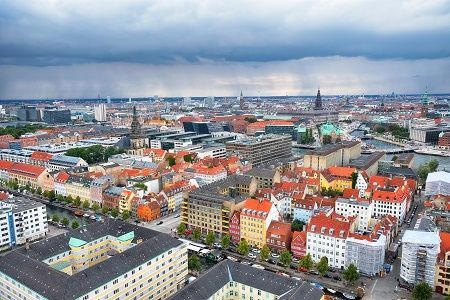- Revenue Cycle Management
- COVID-19
- Reimbursement
- Diabetes Awareness Month
- Risk Management
- Patient Retention
- Staffing
- Medical Economics® 100th Anniversary
- Coding and documentation
- Business of Endocrinology
- Telehealth
- Physicians Financial News
- Cybersecurity
- Cardiovascular Clinical Consult
- Locum Tenens, brought to you by LocumLife®
- Weight Management
- Business of Women's Health
- Practice Efficiency
- Finance and Wealth
- EHRs
- Remote Patient Monitoring
- Sponsored Webinars
- Medical Technology
- Billing and collections
- Acute Pain Management
- Exclusive Content
- Value-based Care
- Business of Pediatrics
- Concierge Medicine 2.0 by Castle Connolly Private Health Partners
- Practice Growth
- Concierge Medicine
- Business of Cardiology
- Implementing the Topcon Ocular Telehealth Platform
- Malpractice
- Influenza
- Sexual Health
- Chronic Conditions
- Technology
- Legal and Policy
- Money
- Opinion
- Vaccines
- Practice Management
- Patient Relations
- Careers
Want to Be Happy? Think Nordic
A new report looks at the rates of "happiness" in 150 countries. The data might be helpful to American doctors on the edge of burnout.
“As long as I have a want, I have a reason for living. Satisfaction is death.”
—George Bernard Shaw
It’s my opinion that the talents and abilities of the American medical profession are the best in the world. Its record of healing success is unmatched. And when it comes to the pressure-cooker life that an American doctor must face, again there is no equal around the globe. I’m just saying.
But even with that enviable track record, this nation’s physicians are unhappy in their work. Survey after survey shows that doctors are burned out—disgusted and dejected about the practice of medicine.
The new World Happiness Report, a United Nations-backed survey of the state of global happiness, is out with fresh information on happiness around the globe. Perhaps unhappy doctors here at home can learn something from the material. It’s worth a look.
The 2016 WHR authors, “seeking to determine the scientific underpinnings of measuring and understanding subjective well-being,” rank the happiness levels of over 150 countries by polling about 3,000 people in each nation. Their lives were evaluated in 11 categories on a scale from 0 to 10.
The world’s Nordic countries and their near neighbors, “a geographical and cultural region in Northern Europe and the North Atlantic,” pretty much run the table on happiness.
The top 10 happiest nations for 2016 are:

Copenhagen, Denmark
1. Denmark
2. Switzerland
3. Iceland
4. Norway
5. Finland
6. Canada
7. Netherlands
8. New Zealand
9. Australia
10. Sweden
The world’s least happy countries for 2016 are:
Antanarivo, Madagascar
157. Burundi
156. Syria
155. Togo
154. Afghanistan
153. Benin
152. Rwanda
151. Guinea
150. Liberia
149. Tanzania
148. Madagascar
Oddly enough, the USA landed in an unlucky spot on the happiness list, we are 13th. Not too bad.
So what really makes a country happy? According to the WHR, “people in the happiest countries have a higher per capita GDP, live longer and healthier lives, have more social support, have freedom to make life choices, experience less corruption and more generosity, and more equality of happiness. Narrowed down, analysis found that differences in social support, incomes, and healthy life expectancy are the three most important contributors to happiness.
Dr. Jeffrey Sachs, a Harvard-trained economist and best-selling author, who worked on the report believes that happiness isn’t just about money. “Getting richer but not happier: It’s a familiar story, for people and for nations,” Dr. Sachs explained in a recent Huffington Post story. “The purpose of the World Happiness Report is to remind governments, civil society, and individuals that income alone cannot secure our well-being. True happiness depends on social capital, not just financial capital.”
And who deserves happiness more than doctors, who care for the flesh and blood of “social capital”—it’s practitioners. Several doctors have told me that the pursuit of happiness in life is a flawed philosophy. One offered that happiness can only be a coincidental consequence of a meaningful life. “And physicians, of all people, should know this.” Thus it begins with “a meaningful life.” My physician-dad would call a medical career the very definition of meaningful living.
